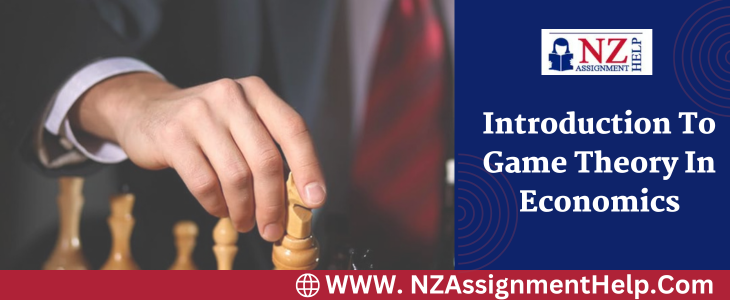Introduction To Game Theory In Economics
Game Theory is an exciting field of Economics that focuses on strategic decision-making between two or more rational entities. Its applications range from business decisions to war scenarios, and its insights are useful for understanding seemingly irrational choices by individuals.
Fundamentally, Game Theory looks into how rational decisions in the pursuit of conflicting objectives can influence the outcomes of games. It is a way to describe the complex interactions between humans who try to predict each other while both trying to achieve their goals. By understanding the mathematics behind the game theory, it is possible to maximize profits and minimize losses in all kinds of economic settings.

What is game theory and why do economists use it?
Game theory is a powerful tool that economists use to analyze strategic interactions between firms and individuals. It enables us to explore the consequences of different courses of action, from which we can assess the implications for decision-making under certain assumptions.
Through its representation of strategic choices in an idealized model, game theory allows economists to identify games where players make decisions based on what they expect others to do. This broad tool is used extensively in business strategy, economic theory and computer science; as understanding how people interact and compete can provide valuable insights into overall behavior in markets and within society. Ultimately, game theory provides essential information for researchers working in economics and other fields, informing decisions about investment, pricing and much more.
How can game theory help us understand economic behavior?
Game theory provides a powerful framework for understanding economic behavior, leveraging key insights from philosophy, mathematics and psychology. The decision-making process of rational actors is explored through the lens of game theory, which seeks to identify the optimal strategies available to those participating in a given situation.
By identifying and predicting these behaviors, game theory can be used to anticipate and explain the economic outcomes arising from certain decisions or behaviors. Additionally, game theory has proven useful in developing policies applicable within political and social contexts, further illustrating its value as an analytical tool. Ultimately, game theory not only offers an effective means of analyzing economic behavior but also presents a robust approach for devising real-world solutions that may yield positive results.
Per Particular University, High School Or College By NZ Writers 300+
PhD Writers 4.9/ 5 ratings
From Students 70 +
Subject Covered 10+
Years Of ExperienceBuy High-Quality Essays & Assignment Writing As
What are some of the key concepts in game theory?
Game theory is the study of the strategic interactions between players in a game or situation. It encompasses many different areas such as economics, biology, and political science. Key concepts in game theory include cooperative and non-cooperative games, Nash equilibrium, sequential games, zero-sum games, and Bayesian games. Cooperative games involve voluntary agreements among two or more players to cooperate rather than compete with each other while non-cooperative games require the players to act independently of one another.
In a Nash equilibrium, none of the players can increase their likelihood of winning by changing their strategies while sequential games are those where one player moves after the other. Zero-sum games are those where total gains from a certain number of players’ strategies add up to zero. Bayesian Games on the other hand consider additional information such as beliefs about an opponent’s behavior which then modify a player’s strategy accordingly. Game theory provides powerful tools for understanding decision-making and optimization in a wide range of real world situations.
How has the game theory been used to study economic problems like oligopoly and bargaining power?
The game theory has been tremendously useful in analyzing economic problems such as oligopoly and bargaining power. It provides a structured framework to assess the payoff and strategies of individual players involved in interactions over finite or infinite period of times.
For instance, game theory can be used in economic studies to model equilibrium between firms competing as an oligopoly instead of perfect competition, where multiple controlling points may exist for pricing and production. Similarly, game theory can be applied to collaborations between buyers and sellers in a bargaining situation – each participant is trying to optimize their overall utility from the negotiation taking place. In both cases, game theorists use probabilities and understand the motivations of players to generate solutions for the competitive market dynamics observed by economists.
Flexible rates compatible with everyone’s budget
In quest for a professional assignment help?
Are there any criticisms of using game theory in economics?
Game theory has been widely employed by economists in an effort to understand and explain decision processes, interactions between firms, and other strategic behavior. Despite its widespread use, some criticisms can be leveled against using game theory in economics.
These critiques include its tendency to oversimplify real-world scenarios, discounting the important role of historical context and institutional structures on economic outcomes; its status as a backward-looking tool which fails to investigate the complex adaptations occurring during the execution of a game; and the challenge of specifying appropriate payoffs for different strategies due to their dynamic nature. Ultimately, successful use of game theory requires customized methodologies for each study coupled with conscious attention given to representational issues.
What are the future directions for research in game theory economics?
Current game theory research has provided many exciting insights into the economic behavior of individuals and firms. Moving forward, game theorists are likely to explore how game theory principles can be used to assist policy-making decisions made by governments as well as corporate decision-making. Given that game theory approaches models involving multiple players, complexity theory may also become a more central theme in upcoming work.
Game theorists should also strive to use technology to further refine existing models and solutions for economic decisions, leveraging artificial intelligence and machine learning tools where applicable. Finally, there is room for continued research into the psychological implications of game theory on the behavior of agents making economic choices. Furthering our understanding of these topics could have far-reaching implications in terms of anticipating outcomes in various market scenarios.


